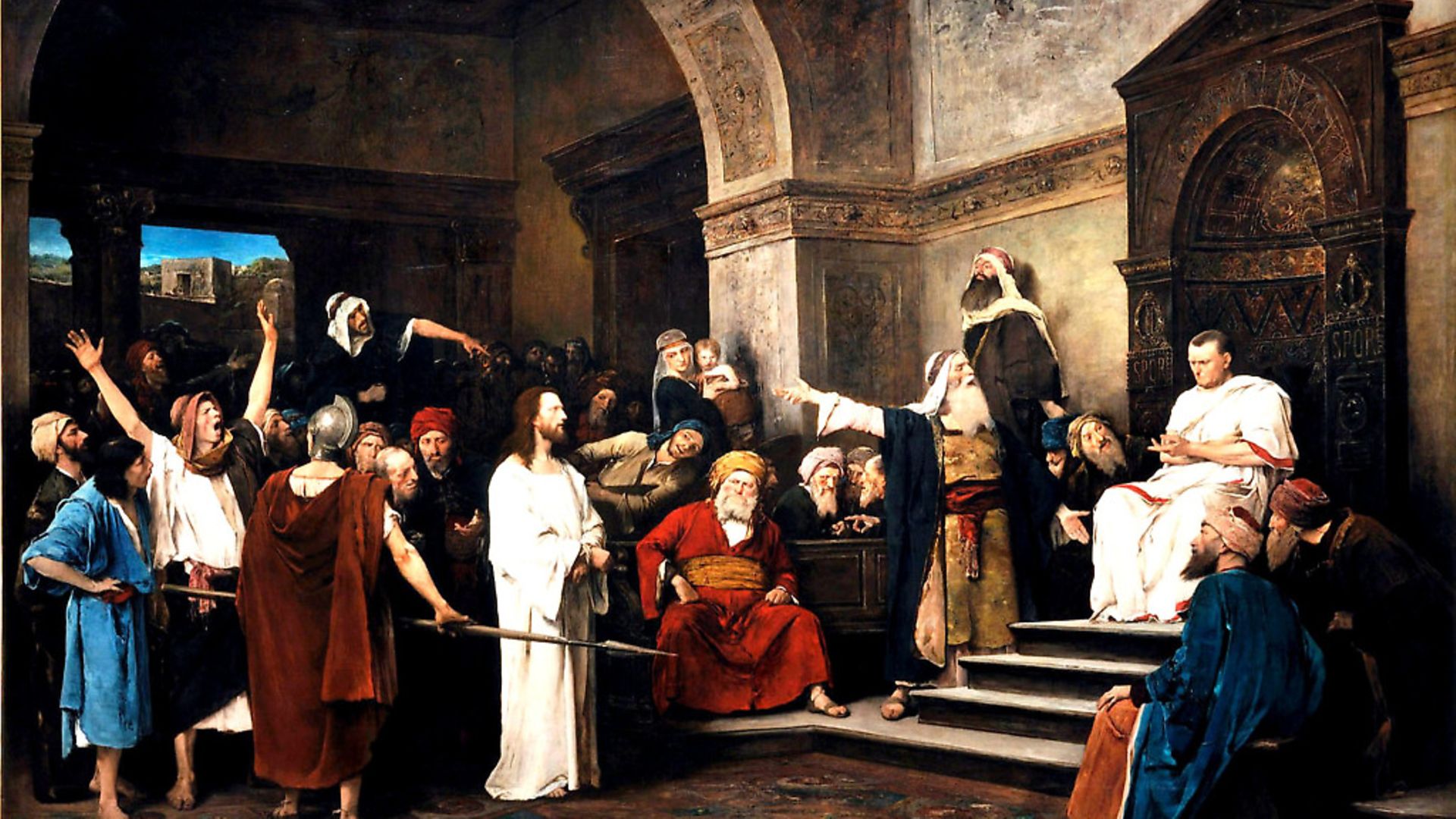
Be very wary when people invoke the will of the people. The fate of Jesus shows us why
‘The public have spoken. It’s the will of the people.’ It is a familiar refrain we’ve heard a lot of, of late. It is also one that was heard, twice, in the account of the first Easter, the momentous final week of Jesus’ life, when the public spoke and the will of the people was expressed.
It wasn’t in the privacy of a polling booth, with each person making a considered decision. Then the public spoke and expressed their will on the streets, in a vast crowd, which soon became a mob in uproar.
The first occasion was Jesus’ entry into Jerusalem on a donkey. The church calls this ‘Palm Sunday’. Each of the four Gospel writers record the events of that day. We are told that a very large crowd gathered. Many spread their cloaks on the road, others formed a procession ahead of him, and some followed him.
He was a subject of popular acclaim as people shouted: ‘Hosanna to the Son of David! Blessed is he who comes in the name of the Lord! Hosanna in the Highest.’
The will of the people, spontaneously and popularly expressed, was of support and enthusiasm for Jesus, and probably of rebellion against the powers that ruled their lives.
Something was happening, things were changing, and Jesus might be the figure around who the hopes of the nation could be built.
This could have been a great populist movement, an expression of something which had been forming for a long time. There had been many rebellions against Roman authority: perhaps this one might succeed. But that wasn’t the way that the man at the centre of all this had chosen.
Five momentous days later, things had changed. After a sham trial where many false witnesses had come forward with fake news, Jesus was passed to the Roman authorities to be dealt with.
No cloaks were spread on the road. He was stripped of his own clothes and wrapped in a purple robe, probably an old and discarded symbol of authority. The religious authorities had stirred up the crowds and now the will of the people was ‘crucify him!’
We are told that Pontius Pilate, the Roman Governor, was well aware of the motives of those who had brought Jesus before him. ‘He knew it was out of self-interest that they had handed Jesus over to him.’
Pilate tried hard to find some way of releasing Jesus, albeit with a flogging. But as the public spoke, and the mob was in uproar, he saw he was getting nowhere. He performed a vivid gesture of asking for a bowl of water and washing his hands of the issue, something which has passed into our language. Then he handed Jesus over to be crucified. At the same time he declared himself innocent of Jesus’ death, as he tried to pass responsibility to the crowd: ‘All the people answered, ‘His blood is on us and our children’.’
As he washed his hands, Pilate abrogated the responsibilities of government. He was not at the head of a representative democracy, such as we enjoy today. But it was still a government of which St Paul could write, in his letter to the Romans, ‘there is no authority except that which God has established. The authorities which exist have been established by God … For the one in authority is God’s servant for your good’.
The events of those five days two thousand years ago show that the will of the people can change, and it can be manipulated by agitators and by falsehoods. The same is true today. For this very reason, we have established and developed forms of government, appointing people who, as St Paul put it, ‘give their full time to governing’.
We entrust weighty decisions to them, and whichever way we voted last June, we should be concerned whenever they tell us, ‘the public have spoken. It’s the will of the people’.
• Revd Bill Mash is the Diocesan Officer for Mission in the Economy & Team Leader, Black Country Urban Industrial Mission









